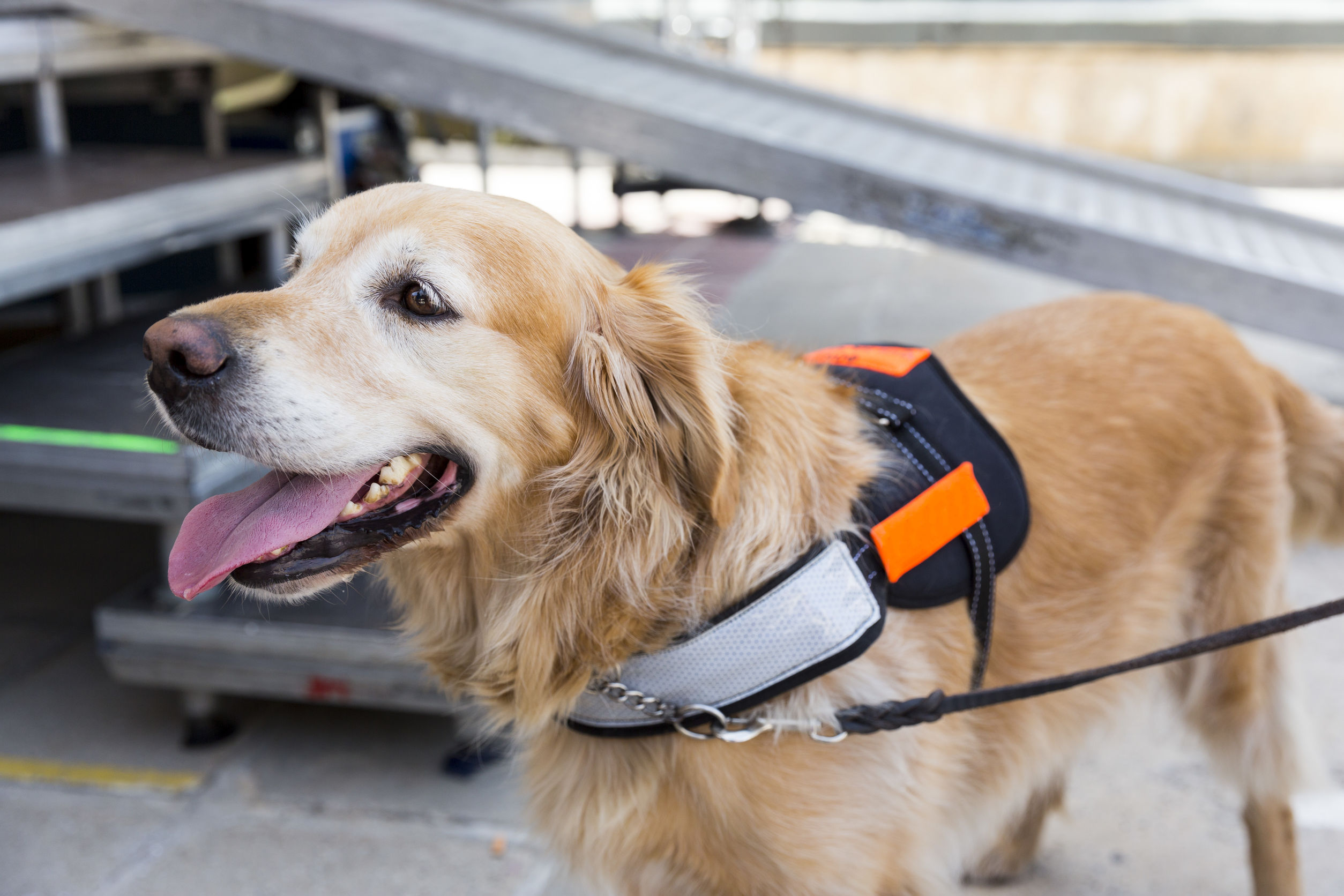
Many people wonder what role service dog identification products, such as service dog ID cards, registration certificates, service dog vests, leashes, or tags play when bringing a service dog or emotional support animal with you and whether these items are required by law or are simply just nice things to have.
Simply put, ID cards, certificates, and registration are not mentioned in federal law and are not required of service dog handlers to prove that their dog is a service dog. There is no official, federal, or national service dog registry service and sites that claim to offer such a service are simply not being truthful. For instance, according to the ADA, a person need only verbally let others know that his dog is a service dog, and may be asked what task the dog performs for him in that capacity.
Why do people buy service dog ID cards or vests if they aren’t required by law?
Service dogs are not only to help the blind with mobility. There are many people who have disabilities that are alleviated by a service dog that may not be immediately apparent upon visual inspection. For example, a diabetes alert dog may appear to be simply a pet, and is probably an excellent companion, but simply looking at the dog and its handler would not be able to tell you that the dog provides a crucial service to its handler – namely being able to alert the handler to severe fluctuations in blood sugar.
Handlers with service dogs that don’t provide an obvious benefit, such as the diabetes alert dog or a seizure alert service dog often face questioning in public because it appears they are simply bringing their pet with them into places where pets are not traditionally allowed. It gets very tiring to have to constantly explain to anyone who approaches you that your dog is not just a pet but is a service dog and its accompaniment is protected by federal law.
This is where identification products become useful – they allow people to instantly recognize a dog as a service dog or emotional support animal, often eliminating the need for questioning and hassle entirely. People are still well within their right to ask what service the dog performs, or in the case of an emotional support animal, ask to see a note from a medical professional prescribing the emotional support animal, however the level of hassle is often drastically reduced with identification gear. This is important for people who travel often with their service dog or emotional support animal.
Misinformation is a problem
Unfortunately, many business owners are ignorant of the law when it comes to the ADA and what kind of information they are allowed to ask of service dog handlers. Many still prompt people for service dog documentation even though this is not allowed by federal law. Again, business owners may only ask whether the dog is a service dog and what task that service dog performs, not for any kind of documentation or identification. For emotional support animals, apartment complexes and airlines may ask to see a prescription letter from a health professional for the emotional support animal.
Rather than argue with ignorant business owners over the law or hire an expensive lawyer to fight on their behalf, many busy service dog handlers find it easier to simply present with the requested identification, even if not required by law, because they have better things to do with their time than to educate every person out there who is ignorant of the ADA laws (and there are many). More needs to be done to educate the general public about what kinds of questions you’re allowed to ask of service dog handlers.
Like a badge and uniform for an employee
Businesses are not required by law to provide identification badges and uniforms to their employees, however many do anyway because they find it valuable for others to instantly recognize their employees as agents of the business. Similarly, although service dogs are not “employees” of their handler, there is value in giving them their own special “uniform” with an ID badge to allow others to instantly recognize them as performing a service for their handler.